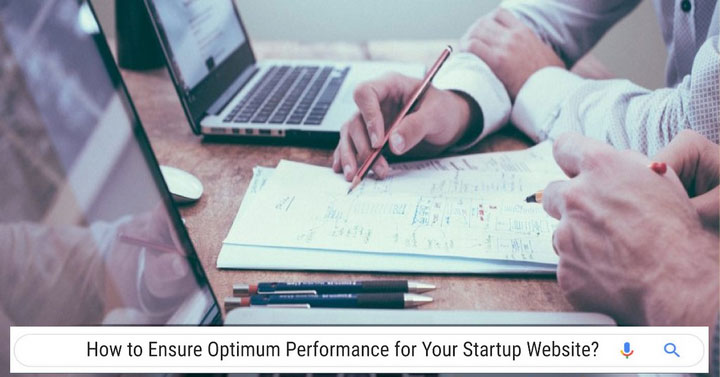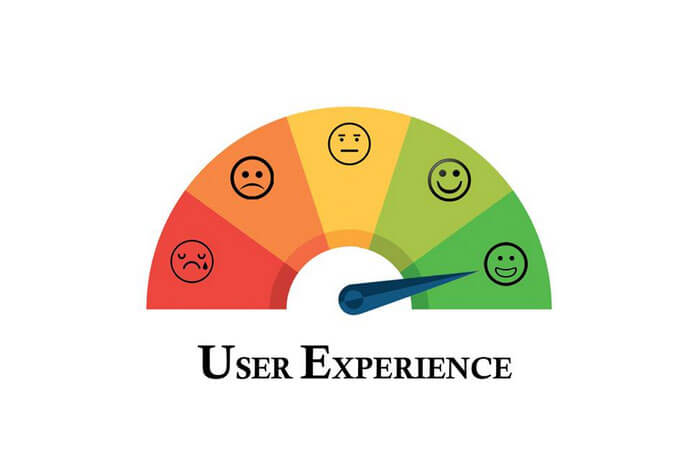
There are 1.14 billion websites that exist worldwide but not every website owner makes their way to success. Especially, if you are a startup, you must ensure what value your website can deliver to users, and for this, you need to focus on two critical aspects of a website; performance and loading speed.
According to EnvisageDigital stats, the page views of a website drop by 11% if it takes over 1 to 2 seconds to load. Besides this, users may lose interest in your site if they don’t find its performance serves their needs. Hence, you must be conscious of these aspects as a startup business.
Here are a few valuable insights on how to enhance your website’s performance and loading speed.
- How to Ensure Optimum Performance for Your Startup Website?
- Factors Responsible for Website Speed
- Choosing the Right Hosting Service
- Web Page Size
- Types of Plugins Used
- Browser caching
- Use of Accelerated Mobile Pages AMPs
- Use of Content Delivery Network (CDN)
- Factors Responsible for Website Performance
- Extent of Mobile-friendliness
- Quality of Technical SEO Services
- Content Marketing Strategy
- User Experience
- Regular Maintenance
- Factors Responsible for Website Speed
- Endnote
Factors Responsible for Website Speed
Before we proceed with the essence of a website’s speed or page load time, let’s look at how ignorance regarding website speed can negatively impact your business.
- Nearly 46% of people consider slow page loading speed the biggest disappointment.
- 1 out of 4 visitors abandons a website if it takes more than 4 seconds to load.
- 64% of shoppers will consider alternate websites if dissatisfied with your site’s performance
- Customer satisfaction rate is reduced by 16% with every 1-second delay.
Let us consider the factors to ensure the good speed of your start-up website.
1. Choosing the right hosting service
As a start-up, you often look for affordability and prefer choosing the most economical hosting service. Before deciding on this, you must get acquainted with your website’s needs. This will depend on the type of products or services you offer.
Not all web hosting service providers offer similar features in their hosting plans. Hence, you must confirm the subscription period and check for server reliability and uptime commitments. Also, check the kind of refund policy your service provider offers, and look for the options to upgrade your plan when required. As a start-up, you can start with a shared hosting plan after cross-checking all the above-mentioned aspects.
2. Web page size

This is a critical aspect in deciding your website’s speed & performance. Heavy or bulky pages take a long time to load and are, therefore, not preferred by search engines and users. Google duly considers the page size of a website before ranking it, so you must ensure an average page size of 1400 KB for quick loading.
Compressed files and well-optimized images help a webpage to load quickly. To ensure good page load speed, use file compression software like GZip to reduce the file size of CSS, HTML, and JavaScript documents. However, refrain from using this software for image files. For images, you can use Photoshop to control the quality and size.
3. Types of plugins used
A plugin is used to add to a website’s performance. But, businesses keep increasing the number of plugins on their websites depending on the growing traffic and change in market trends. Plugins consume a good portion of a server’s processing power and thus, have a direct impact on a website’s speed.
A wise choice needs to be made to decide whether to load plugins on the front-end or the back end. Most businesses often use maximum plugins on the front-end to enhance their website’s appearance and functionalities. This affects the loading speed of the webpage. However, plugins installed on the back-end don’t affect website speed. It is advised to purchase plugins from reputed companies and look for their reviews before purchasing.
Read Also: Top Web Development Companies in India to look out for website development in 2022
4. Browser caching
This occurs when browsers temporarily store most recently visited pages for a quick reload. The components of a webpage that are not likely to have changed are saved offline, such as images, banners, and logos, and when a visitor revisits that webpage, the speed gets maximized, resulting in fast loading.
To ensure improved browser caching, use headers like Etag and cache control. Avoid defining cache behavior using HTML meta tags. Also, keep long max-age values for the content that is updated regularly.
5. Use of Accelerated Mobile Pages AMPs
A mobile-friendly website will add to the advantages of your business.
AMPs are landing pages built using advanced web technologies and are highly mobile-friendly and quick to develop. As AMPs are specifically designed for speed, browsers find it easy to interpret and load these pages with lightning speed. These pages are served directly from Google AMP cache, which supports quick loading and can be loaded directly from your web browser without caching.
6. Use of Content Delivery Network (CDN)
A Content Delivery Network is a wide network of servers. It connects a user to its closest data center within multiple geographical locations. CDN stores multiple content types like images, stylesheets, video, and audio files and speeds up your website by reducing the distance between a user and the desired website. Using a CDN supports high-level scalability and pulls required information from the nearest available server. Therefore, using a CDN lowers your bandwidth cost, enhances website speed, and helps handle traffic spikes effectively to ensure the website’s smooth and optimum performance.
Factors Responsible for Website Performance
Now, let’s discuss some crucial factors that affect the performance of your website and how you can keep a check on the optimum performance of your website.
1. Extent of mobile-friendliness
A mobile-friendly website not only reaches out to the maximum audience but also supports a good ranking on SERPs. Mobile friendliness is a crucial factor for Google to index a website. The way mobile shopping is taking over the online trends, we can certainly assume that a mobile-friendly website will be the most helpful resource to gain popularity and enhance profitability. You can ensure improved conversion rates and rapid download speed by offering a smooth user experience to desktop and mobile users.
2. Quality of technical SEO
Search Engine Optimization (SEO) has become indispensable for businesses to ensure good ranking, enhanced performance, and wide reach. Technical SEO deals with optimizing the infrastructure of a website so that it search engines can easily index it. This includes sitemaps, URL structure, page speed, schema, and site navigation. Opting for a trusted and reputed technical SEO service ensures that your website adheres to Google’s best practices for optimizing a website. SEO experts remove unnecessary pop-ups and disturbing elements that can hinder user experience.
3. Content marketing strategy
Fresh and relevant content on a website is a critical element in deciding the level of success that it will gain. Moreover, marketers prioritizing content marketing or blogging are more likely to increase ROIs. It helps you communicate efficiently with your target audience and deliver customized user experiences based on their preferences and tastes. Content is a proven way to create brand awareness most creatively and comprehensively, resulting in improved engagement and conversion rates.
4. User experience

User Experience (UX) is a buzzword in the online world; businesses across the globe are doing their best to enhance user experiences on their websites. UX includes everything from web design to navigation, i.e., the look and feel of a website.
You can use techniques like user interviews and functionality maps to create a custom wireframe for your website and test using prototypes. Usability testing assures you what kind of user experience your website will offer your audience.
5. Regular maintenance
As a startup, you want your website to perform at its best to get more customers. Regular updating and maintenance of a site help in attracting new visitors, retaining them, and keeping the website ready for growing traffic. Keeping up with software patches and security updates will also help your website perform well. Updated websites are also preferred by Google when indexing, plus it ensures better user engagement. Regular maintenance allows you to keep your website compatible with changing technologies.
Endnote
This post would have helped you understand the critical elements of making the most out of your startup website and what factors to consider to ensure optimum performance and high loading speed. Prioritizing your business website will certainly help you build trust among users and offer them a customized experience in the long run.
We Can Help!
If you need someone to get your website up and running at an improved rate, hire web developers in India from TechnoScore’s competent team at competitive prices. Optimize your website’s performance with the help of our dedicated resources.




